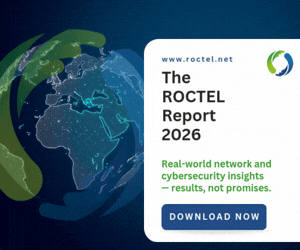A charter for cybersecurity has been signed by a group of companies that aims to establish “binding rules and standards to build trust in cybersecurity and further advance digitalisation”.
Led by Siemens, the Charter of Trust was introduced at the Munich Security Conference where Airbus, Allianz, Daimler Group, IBM, NXP, SGS and Deutsche Telekom were to sign up.
The charter was welcomed by Canadian foreign minister and G7 representative Chrystia Freeland, as well as witnessed by Elżbieta Bieńkowska, EU Commissioner for Internal Market, Industry, Entrepreneurship and Small and Medium-sized Enterprises.
“Confidence that the security of data and networked systems is guaranteed is a key element of the digital transformation,” said Joe Kaeser, president and CEO, Siemens. “That’s why we have to make the digital world more secure and more trustworthy. It’s high time we acted – not just individually but jointly with strong partners who are leaders in their markets. We hope more partners will join us to further strengthen our initiative.”
The charter lists 10 key action areas in cybersecurity where governments and businesses must focus. It calls for responsibility for cybersecurity to be assumed at the highest levels of government and business, with the introduction of a dedicated ministry in governments and a chief information security officer at companies.
It also calls for companies to establish mandatory, independent third-party certification for critical infrastructure and solutions – above all, where dangerous situations can arise, such as with autonomous vehicles or the robots of tomorrow, which will interact directly with humans during production processes. In the future, security and data protection functions are to be preconfigured as a part of technologies, and cybersecurity regulations are to be incorporated into free trade agreements.
The charter’s signatories also call for greater efforts to foster an understanding of cybersecurity through training and continuing education as well as international initiatives.
“Secure digital networks are the critical infrastructure underpinning our interconnected world,” said Canadian foreign minister Freeland. “Canada welcomes the efforts of these key industry players to help create a safer cyberspace. Cybersecurity will certainly be a focus of Canada’s G7 presidency year.”
“Governments must take a leadership role when it comes to the transaction rules in cyberspace,” said Wolfgang Ischinger, chairman, Munich Security Conference. “But the companies that are in the forefront of envisioning and designing the future of cyberspace must develop and implement the standards. That’s why the Charter is so important. Together with our partners, we want to advance the topic and help define its content.”
TechCentral Reporters






Subscribers 0
Fans 0
Followers 0
Followers